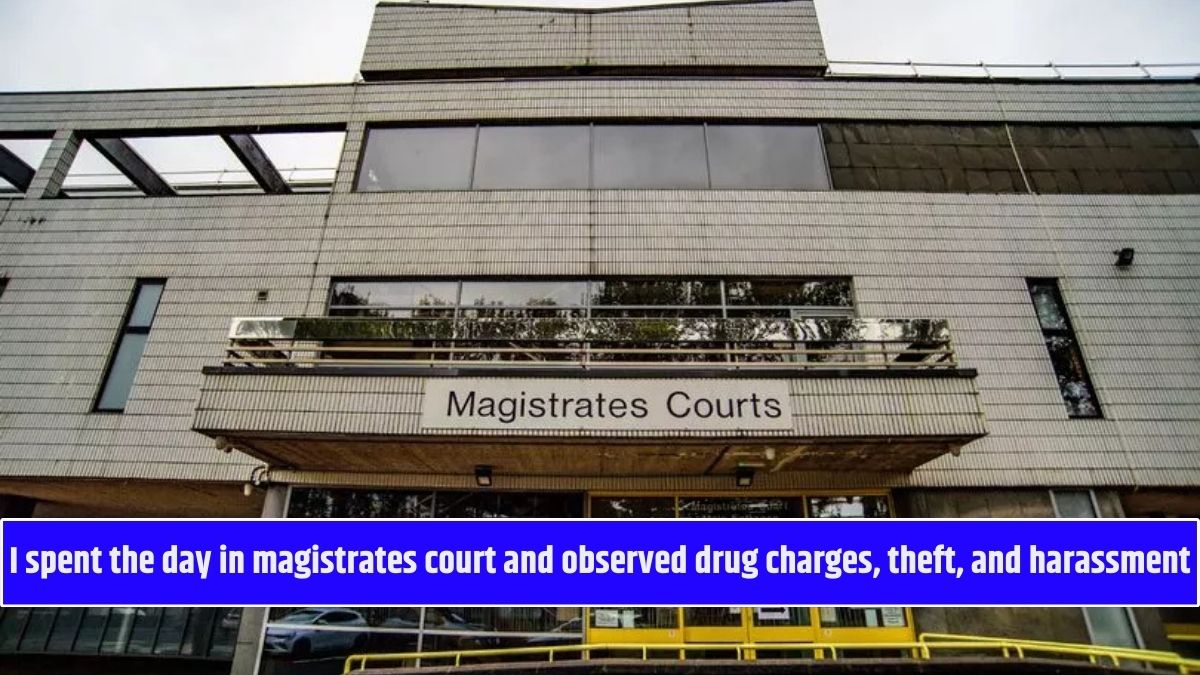Reporting from a Magistrates’ Court offers a unique perspective on the fast-paced nature of the legal system, especially compared to Crown Court, where cases are often more complex and time-consuming. A recent day at Preston Magistrates’ Court saw a range of sentences, trials, and arraignments, covering offenses from theft and drug possession to harassment and weapon charges.
Case 1: Breach of Licence – Brian Smith
Defendant: Brian Smith, 37, from Norfolk Gardens
Offense: Breaching his licence conditions
Outcome: £160 fine
Smith was previously sentenced to 33 weeks in prison in November 2023 for drug-related offenses. After testing positive for Class A drugs and failing to attend a drug appointment, he was brought before the court.
His defense stated that he had “got carried away” with friends but insisted he hadn’t taken drugs since. The court also heard that Smith had lost his best friend to cancer the day before his breach. Considering his good behavior since, the judge fined him £160 in prosecution costs.
Case 2: Burglary & Theft – John Stoddard
Defendant: John Stoddard, 53, from Ryde Street, Hull
Offense: Burglary, dwelling, and theft
Outcome: Case sent to Crown Court
As an indictable-only offense, Stoddard’s burglary and theft charges were deemed too serious for Magistrates’ Court. His case was referred to Crown Court, where the penalties could be more severe.
Case 3: Shoplifting – Brian Lambert
Defendant: Brian Lambert, 49, no fixed address
Offense: Stealing £59.34 worth of Bold laundry pods from Home Bargains
Outcome: 28 days in custody
Recently released from prison on Christmas Eve, Lambert struggled financially and became homeless. He had saved between £500-£1,000 while in prison, but the money quickly ran out. His defense argued that he was “set up to fail” due to lack of support after release.
The judge acknowledged the challenges of reintegration but sentenced Lambert to 28 days in custody.
Case 4: Harassment – Andrew Barratt
Defendant: Andrew Barratt, 59, no fixed address
Offense: Harassment (sending letters from prison)
Outcome: 26 weeks in custody + £154 victim surcharge
Barratt was already serving a sentence at HMP Lancaster Farms for stalking the same victim. Despite a five-year restraining order, he sent letters to the victim and her son, asking for money.
The judge ruled that Barratt had “ignored the restraining order” and had a history of harassment dating back to 2018. He was sentenced to an additional 26 weeks in custody.
Case 5: Serial Shoplifting – John Molyneux
Defendant: John Molyneux, 42, from Bamber Bridge
Offense: Theft of cleaning products from multiple stores
Outcome: 28 days in custody + £65.41 compensation
Molyneux stole:
- £28 of Fairy Liquid from Gee Tee’s
- £19.47 worth from B&M
- £17.94 worth of laundry tablets from Spar
The defense described his case as a “tragic tale of heroin dependency”, noting that Molyneux had previously served an 8-week sentence for similar thefts. The judge sentenced him to 28 days in custody and ordered him to pay compensation.
Case 6: Unpaid Fines – Paul Fielding
Defendant: Paul Fielding, 44, no fixed address
Offense: Unpaid fines for TV license and driving offenses
Outcome: Fines cleared, detained for the day
Fielding owed £826 in fines, including a penalty for using a mobile phone while driving. Struggling with homelessness, ADHD, and mental health issues, he was unable to pay.
The judge acknowledged his difficult circumstances and cleared the fines, instead ordering that he remain in court custody for the day.
Case 7: Possession of a Weapon & Drugs – Josh Reilly
Defendant: Josh Reilly, 24, from Burscough
Offense: Possession of an extendable baton and Class B drugs
Outcome: Awaiting sentencing
Police responded to a call from Reilly’s mother on June 29, 2024. When officers arrived at his home, he had already left, but was later found and taken into custody.
Reilly claimed he did not realize he had the weapon, but the judge found this unlikely, especially since he was also in possession of cannabis.
Key Takeaways: Crown vs. Magistrates’ Court
One of the biggest differences between Magistrates’ and Crown Courts is the speed at which cases are processed.
- Magistrates’ Court handles less serious cases and deals with them quickly—often within a single hearing.
- Crown Court deals with more serious offenses, requiring longer trials, jury involvement, and more complex legal arguments.
In this session at Preston Magistrates’ Court, seven cases were handled in just one day, demonstrating the efficiency and rapid decision-making of the lower court system.
A day at Preston Magistrates’ Court showcased a variety of cases, from shoplifting and harassment to weapons offenses and unpaid fines. Some defendants received custodial sentences, while others were fined or referred to Crown Court for further proceedings.
The fast-paced nature of Magistrates’ Court ensures that justice is served efficiently, although some cases highlight ongoing issues such as drug dependency, homelessness, and mental health struggles that continue to challenge the criminal justice system.
| Visit for More News and Updates | WSOA NEWS |















